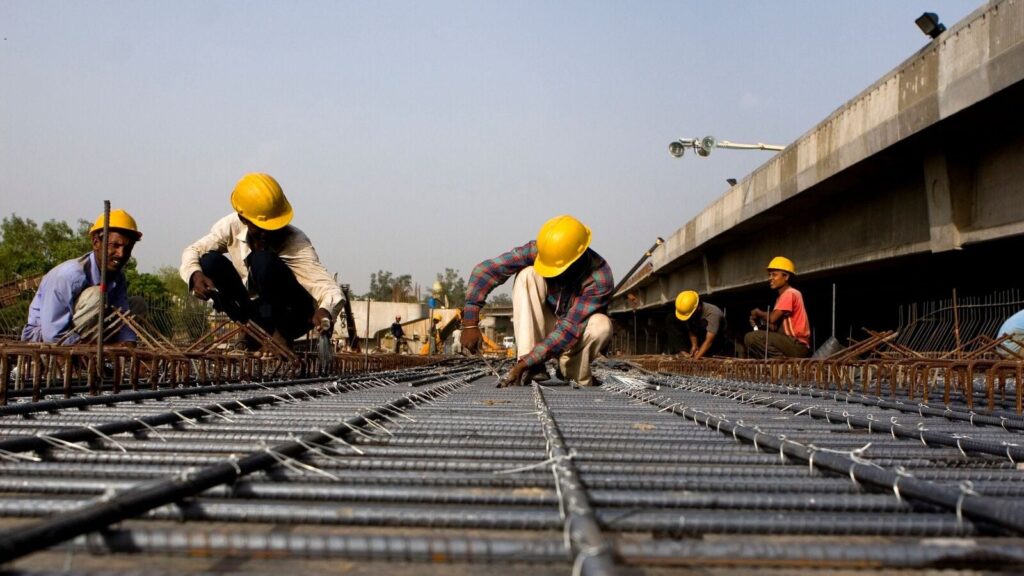Steel rebar prices are high, can go higher, worrying real estate and infra sectors

Mumbai: Prices of steel rebars, a key component for construction, have seen a rise in recent months and can see upward movement in the coming weeks as building activity picks post monsoon, experts said, raising margin concerns for real estate and infrastructure firms.
The price increases are partly due to a supply shortage amid a production slump at state-owned Rashtriya Ispat Nigam Ltd (RINL), a major manufacturer of long steel, which is used to make rebars.
Average rebar prices saw a cumulative uptick of ₹2,400 per tonne over two consecutive weeks in late September and early October, according to a report from BNP Paribas dated 7 October. That translates to a price hike of about 4-5%. JSW Steel Ltd and ESL Steel Ltd hiked rebar prices by about ₹1,000 per tonne while Jindal Steel and Power Ltd (JSPL) made a ₹2,000 per tonne upward revision during this period.
Also read | China’s real estate package stimulates Indian steel
The prices are expected to rise further in the coming weeks as demand rises. In India, construction activity peaks in the latter half of a financial year, post the monsoon season.
“We expect a sharp rise in rebar prices due to the RINL production cuts. RINL is a big player in terms of long products capacity and their production cuts are causing 4.5-5 million tonnes of annual shortage,” said Priyankar Biswas, India analyst, industrials, logistics and metals, BNP Paribas.
“In April-May also, rebar prices went up when workers at the Gangavaram port (in Andhra Pradesh) went on a strike, curtailing RINL production,” he said.
Steel represents about 20% of the input cost of construction firms, according to Kushagr Ansal, director, Ansal Housing.
“Steel prices have seen a moderate increase in recent weeks, though the impact on our margins is currently manageable,” he said. “At present, we’re focused on optimizing resources to absorb the impact. If prices continue to rise, we may need to reassess our pricing strategy for future projects.”
Also read | India plans ‘safeguard duty’ to protect steel companies from cheap imports
RINL, which operates the Visakhapatnam steel plant in Andhra Pradesh, has been facing cash woes and has missed debt repayments since July. The company has an annual production capacity of 7.3 million tonnes, one of the largest among makers of long steel products in India.
However, only one of its three blast furnaces is operational and that too at partial capacity, said people in the know. This is creating a supply shortage for rebars in the market.
What is also exacerbating the situation is that the state-owned National Highways Authority of India has barred several secondary steelmakers from supplying rebars due to quality lapses, according to analysts at BigMint, a market intelligence firm.
This is further pushing up the prices of rebars sold by primary manufacturers like RINL, they said.
Also read | India gears up for national green steel mission as demand surges
Primary steelmakers are those that smelt iron ore into steel in large blast furnaces. Secondary steelmakers melt steel scraps and iron in smaller electric arc furnaces to make steel. Tata Steel Ltd, JSW Steel, JSPL and RINL are some of the primary steel manufacturers. The quality of primary steel usually tends to be superior, and the products are also pricier.
Pradeep Aggarwal, chair of real estate firm Signature Global (India) Ltd, said the steel price hikes are a relatively minor concern, and the company is taking a proactive, long-term planning approach to ensure that contingencies are in place to safeguard margins.
“We remain confident that these (price) adjustments are temporary, and our thorough planning ensures resilience in navigating industry fluctuations,” he said.
Long steel refers to steel that is shaped into rods, bars and wires. Flat steel is manufactured in the form of slabs which are then made into sheets and coils.








